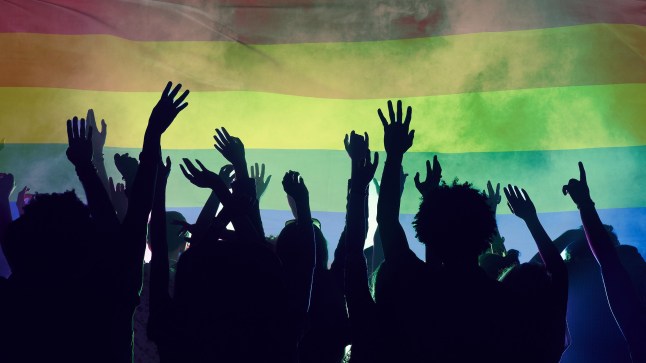
Venue owners and nightclub organisers told Metro that ensuring spaces are trans-inclusive is paramount
In 1998,Dee Chanelle had no idea who she was. She was a singer – that much she knew – but she could never explain why she didn’t belong.
She knew she was part of the LGBTQ+ community,so she spent years hitting up gay bars only to still feel somewhat alienated inside.
That’s when,at a gig,she was approached to sing every Saturday at The Way Out club,a trans nightclub in Camden,north London.
‘When I went there,I’ll never forget that day,’ Dee recalls to Metro.
‘I saw so many transgender people – cross-dressers,transvestites,transsexuals – and that’s when I thought: “Oh my God,this is my world. This is where I belong”.
‘That club gave me the confidence and the space to find myself. I don’t know where I’d be right now – and that’s not an exaggeration.
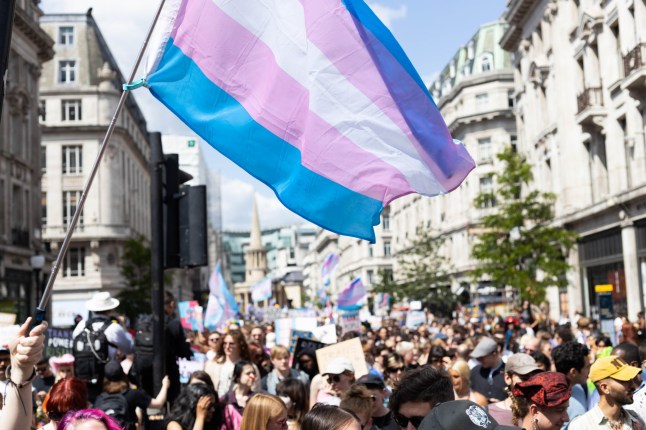
Transphobic hate crimes have been increasing in recent years (Picture: Sinai Noor/Shutterstock)
‘That was my introduction to this world of being trans and the support system I could get at that time – and now I’m that support system for the new generation.’
That fateful club night helped Dee realise she is a trans woman. Cut to 2025,she is now the director of her own trans-owned trans-led event,called Zodiac,at the Way Out club by London’s Euston Station.
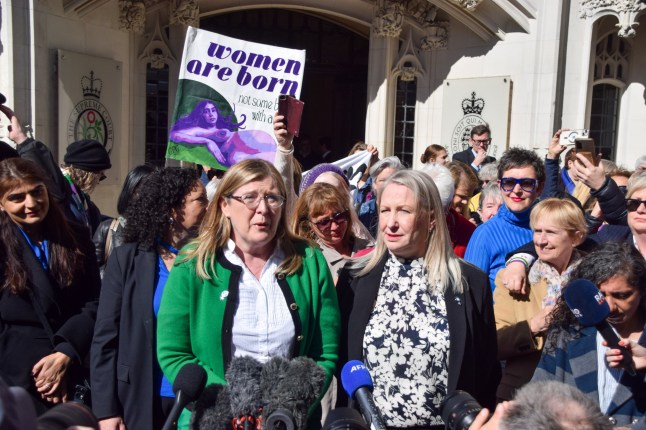 Campaigners celebrated outside the Supreme Court following the ruling (Picture: Vuk Valcic/ZUMA Press Wire/Shutt)
Campaigners celebrated outside the Supreme Court following the ruling (Picture: Vuk Valcic/ZUMA Press Wire/Shutt)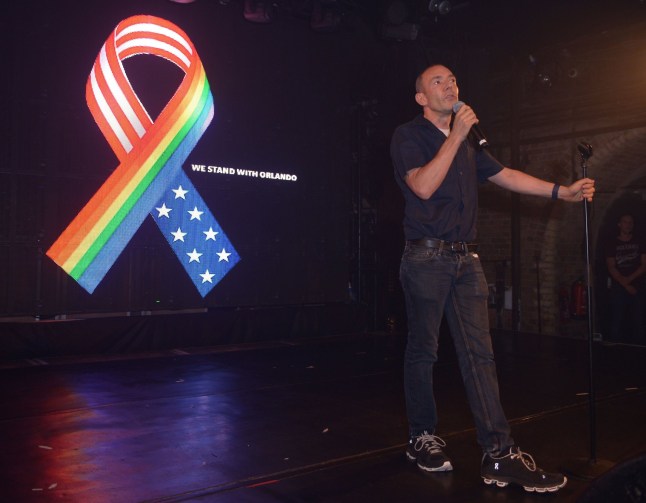 Jeremy Joseph urged all venues – LGBTQ+ or otherwise – to be trans-inclusive (Picture: Rob Cable/Shutterstock)Jeremy fears that nightclub operators will struggle to make sense of the legal ramifications,if any,of the ruling. Whether it be who can use public toilets or which bouncers should pat patrons down.‘We need to start protecting our LGBTQ+ venues and make sure that they are all safe spaces,so that people have somewhere to go where they feel like,even if it’s just for a few hours,they can be their true selves,’ he says.‘We’re not changing anything. Our responsibility is to make sure our spaces are safe for people who feel vulnerable and we need to be vocally supportive of them.’He said he’s prepared to do what he can. ‘When things come into place,we need to decide to go with them or break the law,’ Jeremy adds.
Jeremy Joseph urged all venues – LGBTQ+ or otherwise – to be trans-inclusive (Picture: Rob Cable/Shutterstock)Jeremy fears that nightclub operators will struggle to make sense of the legal ramifications,if any,of the ruling. Whether it be who can use public toilets or which bouncers should pat patrons down.‘We need to start protecting our LGBTQ+ venues and make sure that they are all safe spaces,so that people have somewhere to go where they feel like,even if it’s just for a few hours,they can be their true selves,’ he says.‘We’re not changing anything. Our responsibility is to make sure our spaces are safe for people who feel vulnerable and we need to be vocally supportive of them.’He said he’s prepared to do what he can. ‘When things come into place,we need to decide to go with them or break the law,’ Jeremy adds.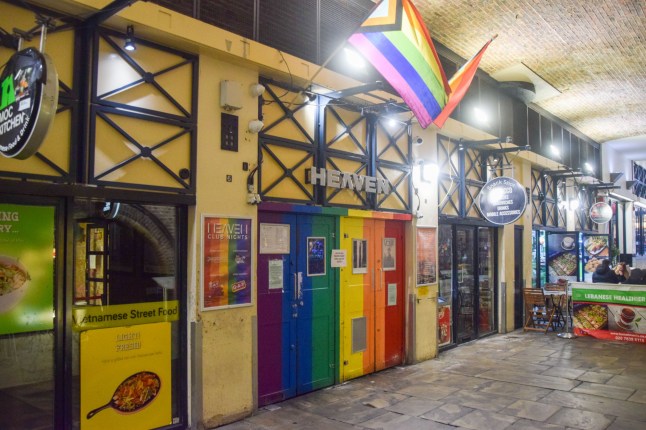 Heaven is one of the largest LGBTQ+ nightclubs in Britain (Picture: Vuk Valcic/ZUMA Press Wire/Shutt)‘That’s something we will consider. We will do nothing that we don’t agree with – and if it means breaking the law,that’s what we’ll do.’Jeremy wonders how non-LGBTQ+ venues will ‘handle’ being inclusive of trans customers,outside of hanging a flag outside the door during Pride month.‘How are trans people going to feel about going into a non-LGBTQ+ venue?’ he asks.Terri Hartshorn is another person trying to ensure that other LGBTQ+ people have a place they can simply be – and that includes trans people.She helps organise the trans-inclusive G.IRL Events for queer women and non-binary people. During their annual London Pride events,thousands of queer women and non-binary people come together to sing,dance,kiss,sweat and express themselves.‘But we can’t be limited to just one day,and G.IRL gives me and others the regular physical space to feel authentic and connected,’ they say.
Heaven is one of the largest LGBTQ+ nightclubs in Britain (Picture: Vuk Valcic/ZUMA Press Wire/Shutt)‘That’s something we will consider. We will do nothing that we don’t agree with – and if it means breaking the law,that’s what we’ll do.’Jeremy wonders how non-LGBTQ+ venues will ‘handle’ being inclusive of trans customers,outside of hanging a flag outside the door during Pride month.‘How are trans people going to feel about going into a non-LGBTQ+ venue?’ he asks.Terri Hartshorn is another person trying to ensure that other LGBTQ+ people have a place they can simply be – and that includes trans people.She helps organise the trans-inclusive G.IRL Events for queer women and non-binary people. During their annual London Pride events,thousands of queer women and non-binary people come together to sing,dance,kiss,sweat and express themselves.‘But we can’t be limited to just one day,and G.IRL gives me and others the regular physical space to feel authentic and connected,’ they say.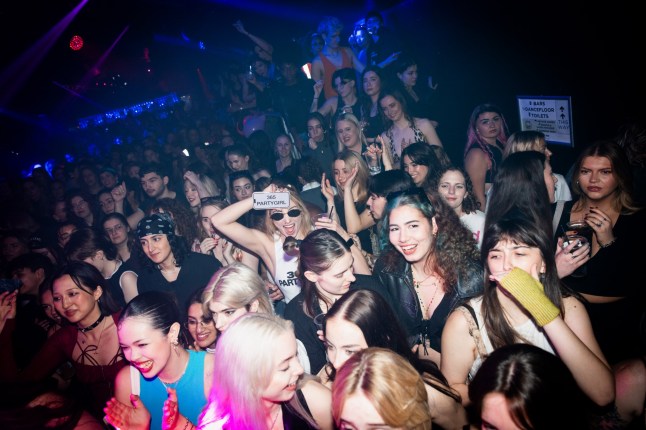 Events organises club nights in London,Manchester and other parts of the UK (Picture: G.IRL)
Events organises club nights in London,Manchester and other parts of the UK (Picture: G.IRL)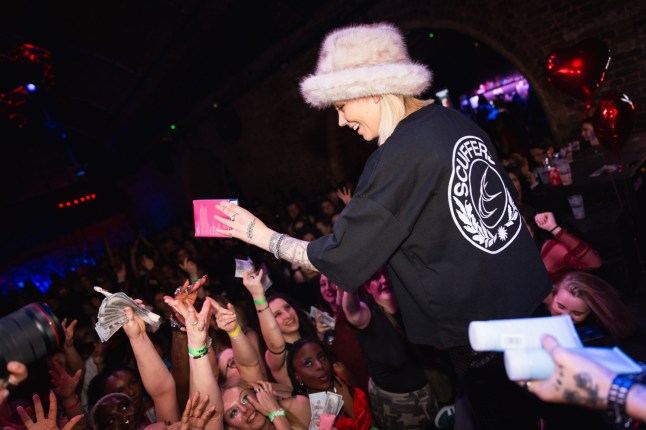 All events are for cisgender and trans women as well as non-binary people (Picture: G.IRL)‘As a community,we’ve come so far,yet there is so far left to go for our trans brothers and sisters,and non-binary folks.’Life can be hard for trans people,Terri says. The community experiences higher-than-average rates of depression and anxiety as well as poverty.In the year ending March 2024,figures from the Home Office show 4,780 transphobic crimes occurred in England and Wales; a number that only includes those reported to the police. Healthcare options for trans people have also become increasingly limited.‘It can feel overwhelming as an individual to know how to create change on a mass level for the trans community – I’m not an expert,I don’t have any political power,’ Terri says.‘But I can and will create safer spaces where trans women feel included,seen and heard.’As physical spaces shutter,queer people are also looking to the internet to give them a sense of community and belonging,says Aquayemi-Claude Akinsanya,who runs a weekly online hangout for LGBTQ+ people called Online Safe Space Tuesday.
All events are for cisgender and trans women as well as non-binary people (Picture: G.IRL)‘As a community,we’ve come so far,yet there is so far left to go for our trans brothers and sisters,and non-binary folks.’Life can be hard for trans people,Terri says. The community experiences higher-than-average rates of depression and anxiety as well as poverty.In the year ending March 2024,figures from the Home Office show 4,780 transphobic crimes occurred in England and Wales; a number that only includes those reported to the police. Healthcare options for trans people have also become increasingly limited.‘It can feel overwhelming as an individual to know how to create change on a mass level for the trans community – I’m not an expert,I don’t have any political power,’ Terri says.‘But I can and will create safer spaces where trans women feel included,seen and heard.’As physical spaces shutter,queer people are also looking to the internet to give them a sense of community and belonging,says Aquayemi-Claude Akinsanya,who runs a weekly online hangout for LGBTQ+ people called Online Safe Space Tuesday.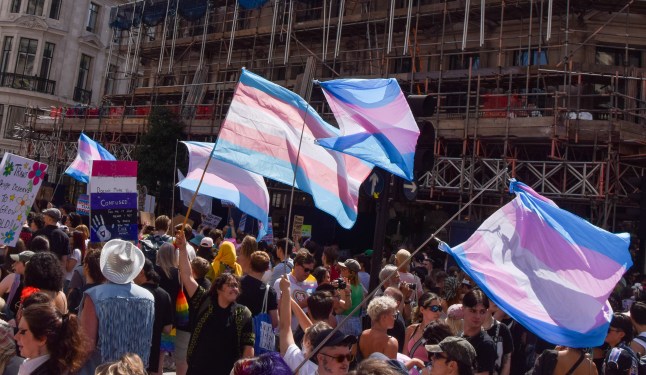 Dee said that a trans club gave her the space needed to discover her identity (Picture: Vuk Valcic/SOPA Images/LightRocket via Getty Images)‘Online spaces offer an accessible,inclusive sanctuary for individuals who may not be safe,seen,or comfortable in their local environments – whether due to geography,disability,discrimination,or other barriers,’ he tells Metro.‘If we don’t intentionally acknowledge LGBTQ+ as a whole,we risk erasing the richness and diversity of our community.’Zoe Williams,the director of the Vagina Museum,knows how important it is that spaces make it clear that trans,non-binary and intersex people are all welcome,and do something as simple as use the toilet.The museum in Cambridge Heath,East London,is the world’s first brick and mortar museum dedicated to understanding and appreciating gynaecological anatomy.‘As a venue,we have gender-neutral toilet facilities. We have a single toilet,which is wheelchair accessible,’ Zoe says.‘This is a fairly normal set-up for an organisation of our size,but online trolls will occasionally decry this arrangement as “woke”.’
Dee said that a trans club gave her the space needed to discover her identity (Picture: Vuk Valcic/SOPA Images/LightRocket via Getty Images)‘Online spaces offer an accessible,inclusive sanctuary for individuals who may not be safe,seen,or comfortable in their local environments – whether due to geography,disability,discrimination,or other barriers,’ he tells Metro.‘If we don’t intentionally acknowledge LGBTQ+ as a whole,we risk erasing the richness and diversity of our community.’Zoe Williams,the director of the Vagina Museum,knows how important it is that spaces make it clear that trans,non-binary and intersex people are all welcome,and do something as simple as use the toilet.The museum in Cambridge Heath,East London,is the world’s first brick and mortar museum dedicated to understanding and appreciating gynaecological anatomy.‘As a venue,we have gender-neutral toilet facilities. We have a single toilet,which is wheelchair accessible,’ Zoe says.‘This is a fairly normal set-up for an organisation of our size,but online trolls will occasionally decry this arrangement as “woke”.’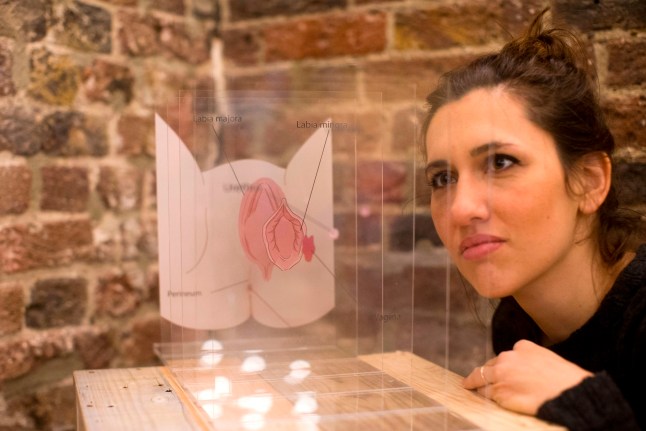 The Vagina Museum has long been clear that it is a trans-incluasive space (Picture: AFP)A 2023 study by the University of California,Los Angeles (UCLA) found no evidence that letting trans people use public facilities that align with their gender identity increases safety risks. Yet bathrooms are often where trans people face harassment and violence,especially when forced to use a facility according to their sex assigned at birth.‘Biology is not a clear-cut binary,and what you learn in school is grossly oversimplified,’ Zoe stresses.‘Trans people have always existed and will always exist. It’s critical to remember that.’
The Vagina Museum has long been clear that it is a trans-incluasive space (Picture: AFP)A 2023 study by the University of California,Los Angeles (UCLA) found no evidence that letting trans people use public facilities that align with their gender identity increases safety risks. Yet bathrooms are often where trans people face harassment and violence,especially when forced to use a facility according to their sex assigned at birth.‘Biology is not a clear-cut binary,and what you learn in school is grossly oversimplified,’ Zoe stresses.‘Trans people have always existed and will always exist. It’s critical to remember that.’United News - unews.co.za